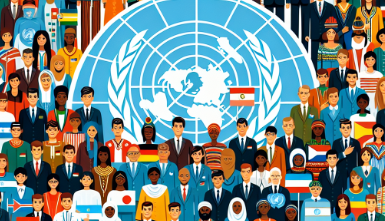UN Allocates $100 Million For Urgent Humanitarian Needs
The United Nations has recently allocated $100 million from its Central Emergency Response Fund (CERF) to help address urgent humanitarian needs in ten countries facing severe crises. This decision highlights the pressing need for funding, as noted by UN humanitarian chief Joyce Msuya.
How Is the Funding Distributed?
The $100 million is divided among several countries facing different challenges:
Yemen ($20 million): Dealing with a long-lasting civil war.
Ethiopia ($15 million): Struggling with internal conflict and ethnic tensions.
Myanmar ($12 million), Mali ($11 million), Burkina Faso ($10 million), Haiti ($9 million): These countries are dealing with ongoing conflicts and climate-related problems.
Cameroon ($7 million) and Mozambique ($7 million): Both countries are facing chronic instability.
Burundi ($5 million) and Malawi ($4 million): Experiencing severe food shortages due to climate issues.
Historical Context
This $100 million allocation is the second of its kind in 2024, with the first one made in February. Over the last three years, the total amount of CERF funding has decreased. This shows a growing gap between the increasing humanitarian needs and the available resources.
Global Humanitarian Needs
The global humanitarian community has requested $49 billion this year to help 187 million people. However, only 29% of this amount has been provided so far, leaving a $35 billion shortfall. Some of the current funding supports climate-related initiatives through CERF’s Climate Action Account, which was introduced at COP28. This account focuses on addressing climate emergencies by funding proactive measures and resilience projects.
CERF’s Impact and Goals
Since it started in 2005, CERF has distributed $9.3 billion to help millions of people in over 110 countries. Of this, $3.2 billion has gone to underfunded crises. CERF is crucial for quick humanitarian responses and aims to raise $1 billion annually for its efforts.
About the United Nations
The United Nations (UN) was created in 1945 after World War II to promote peace and cooperation. It has 193 member countries and six official languages, with its headquarters in New York City. The UN’s budget is mainly funded by contributions from its member states. It has five main organs, including the General Assembly and the Security Council. The UN conducts peacekeeping missions, with its first mission starting in 1948. Specialized agencies like UNICEF and WHO are part of the UN system. UN Day is celebrated on October 24, and the Universal Declaration of Human Rights was adopted by the UN in 1948.
Month: Current Affairs - September, 2024
Category: International / World Current Affairs






